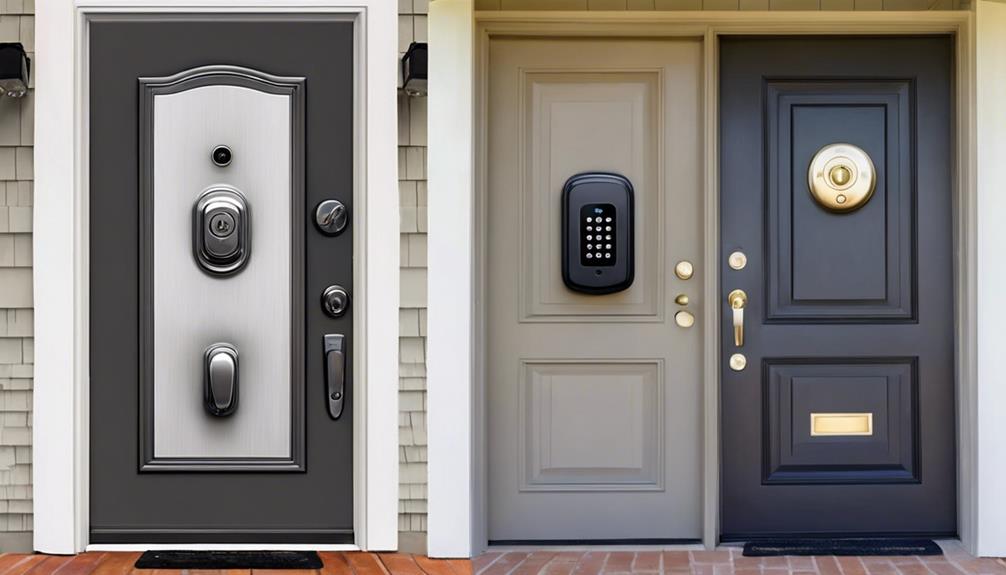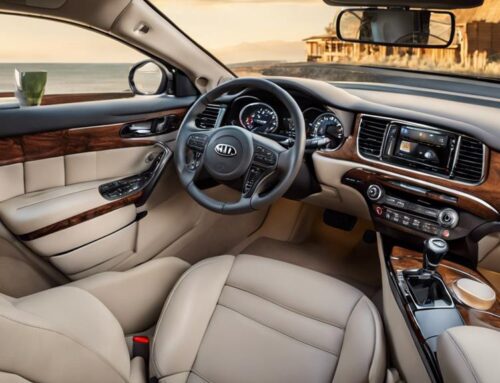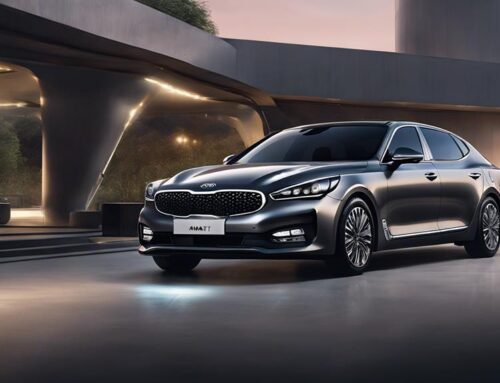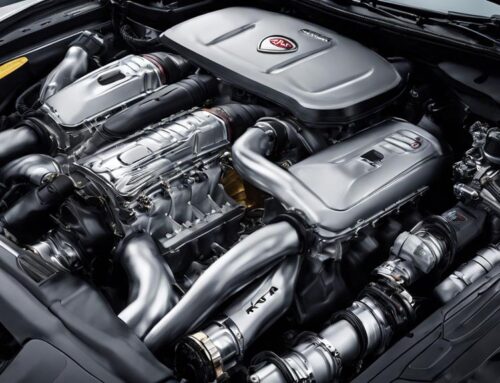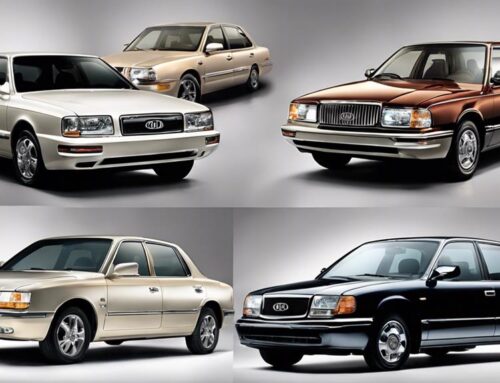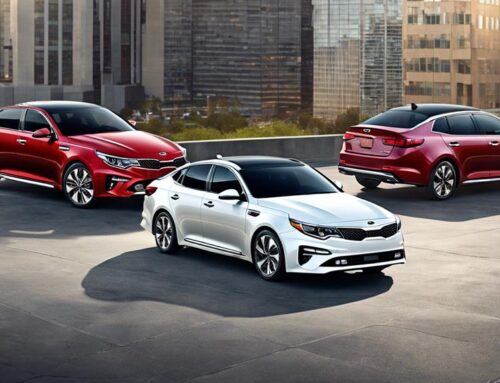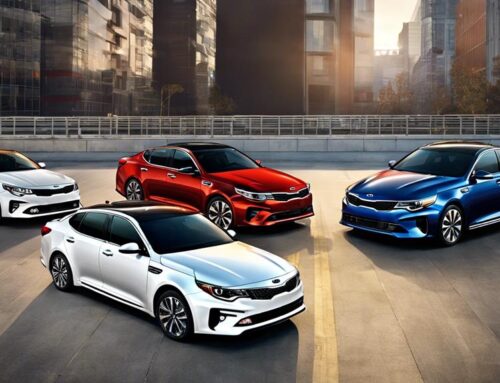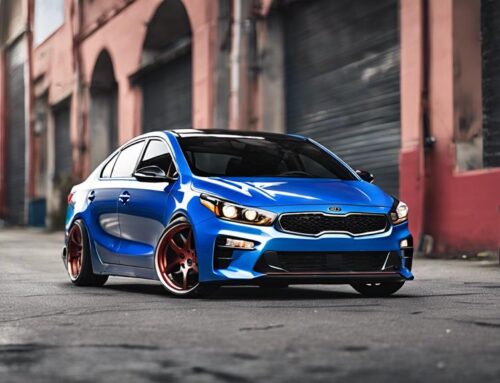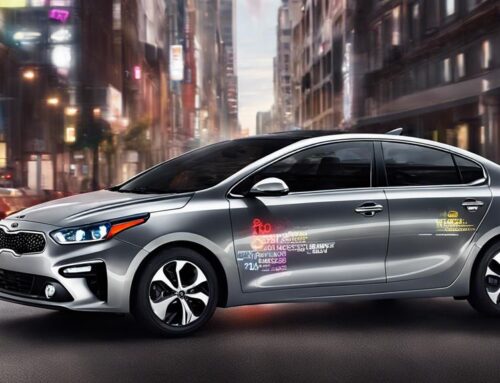When choosing between deadbolts and smart locks for home security, consider your priorities. Deadbolts offer solid mechanical security, while smart locks boast advanced features like encryption and remote access. Smart locks provide keyless entry and personalized access codes, but deadbolts require physical keys. Maintenance varies, with deadbolts needing less attention. Smart locks may incur ongoing costs but offer automation integration benefits. Your comfort with technology and aesthetic preferences play a role in your decision. Each has its strengths and weaknesses. Understanding these differences will help you decide which option aligns best with your security needs and lifestyle.
Key Takeaways
- Smart locks offer advanced security features like encryption and real-time alerts.
- Deadbolts provide robust mechanical security, minimizing electronic breach risks.
- Smart locks enhance convenience with keyless entry and remote management.
- Traditional deadbolts are cost-effective with minimal maintenance needs.
- Smart locks excel in access control options with multiple entry methods and guest management features.
Security Features Comparison
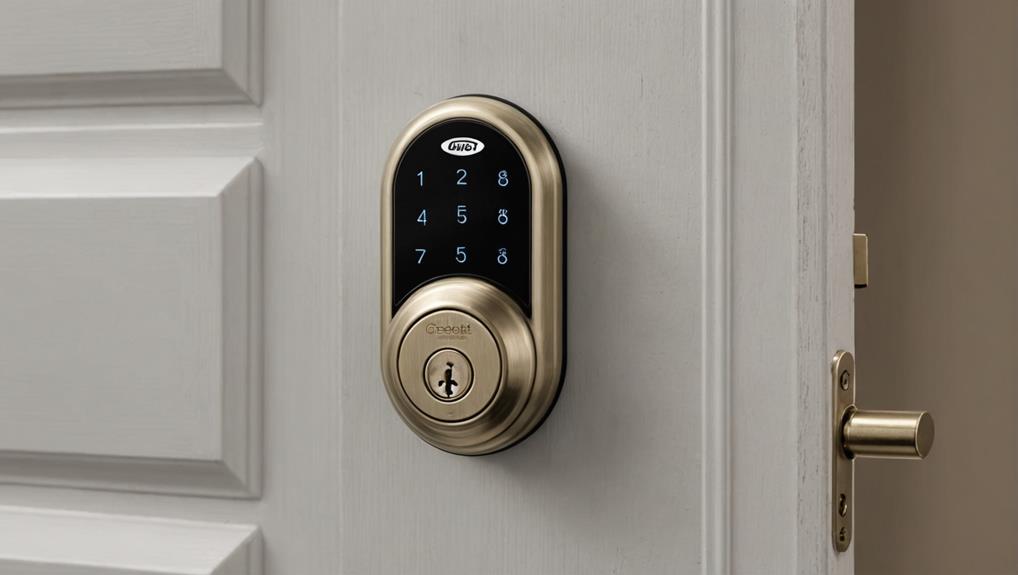
When comparing security features between deadbolts and smart locks, it becomes evident that each option brings unique strengths to the table. Deadbolts offer robust mechanical security, reducing the risk of electronic breaches compared to smart locks.
On the other hand, smart locks provide advanced features like encryption, two-factor authentication, and real-time alerts, enhancing overall home security. According to a comprehensive review of high-security locks, combining both technologies in a dual-lock system can offer heightened protection against forced entry.
Moreover, smart locks have the advantage of supporting temporary access codes for visitors, enabling homeowners to manage access securely.
Additionally, smart locks can integrate with home automation systems, adding layers of security through synchronized locking and alarm management. While deadbolts function as reliable standalone security measures, the integration of smart locks can enhance the overall security of your home.
Convenience and Accessibility
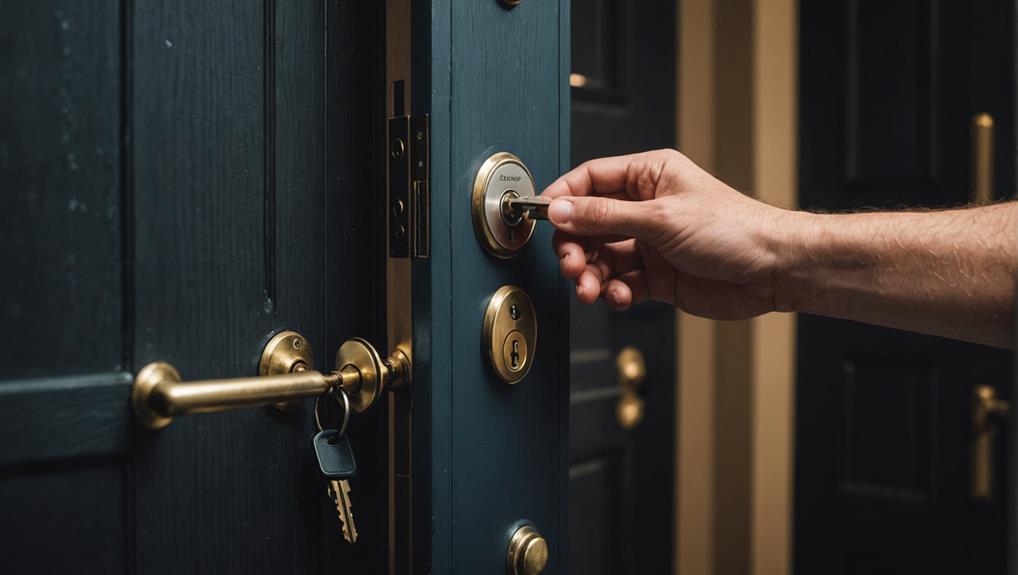
Smart locks offer a range of access control options, such as keyless entry and programmable user codes, enhancing your everyday convenience.
With remote management features, you can open doors for guests or service providers with ease from anywhere using a smartphone app.
These capabilities simplify guest management and offer flexibility in granting temporary access, making smart locks a convenient choice for modern homeowners.
As smart home security systems continue to evolve, they're transforming the way homeowners protect their properties, providing an extra layer of security and peace of mind.
Access Control Options
Enhancing convenience and accessibility, the access control options offered by smart locks revolutionize the way homeowners secure and manage entry to their homes. Unlike traditional deadbolts that rely solely on physical keys, smart locks provide keyless entry options such as smartphone activation, PIN codes, and biometrics, making entry hassle-free and eliminating the need for carrying keys.
With features for remote access, smart locks enable homeowners to open doors from anywhere, a functionality deadbolts lack, allowing for convenient access for guests or service providers.
Moreover, smart locks allow for easy management of guest access by programming temporary access codes, eliminating the need for physical key copies. Scheduled access features in smart locks permit homeowners to set specific times for code or access permissions activation, providing enhanced control over entry.
Integration with home automation systems further enhances convenience, allowing smart locks to seamlessly operate alongside other smart devices for a more streamlined home security experience.
When choosing home locks for convenience and accessibility, smart locks offer unparalleled flexibility and ease of use compared to traditional deadbolts.
Remote Management Features
Revolutionizing home security and access control, smart locks offer unparalleled convenience and accessibility through their advanced remote management features.
These best door locks provide you with the ability to lock or open your doors from anywhere in real-time using smartphone apps. With programmable user codes, you can easily grant temporary access to guests or service providers without the hassle of physical keys.
Smart locks also keep you informed with notifications for any tampering or unauthorized access attempts, allowing for immediate action if needed. Integration with home automation systems enables scheduled locking/opening and coordination with other smart devices for seamless home management.
Additionally, scheduled access features allow you to set specific times for temporary codes, making smart locks ideal for managing access during vacations or service appointments.
When considering a lock comparison, the remote management capabilities of smart locks truly elevate your home security and accessibility to a whole new level.
Installation and Maintenance Factors
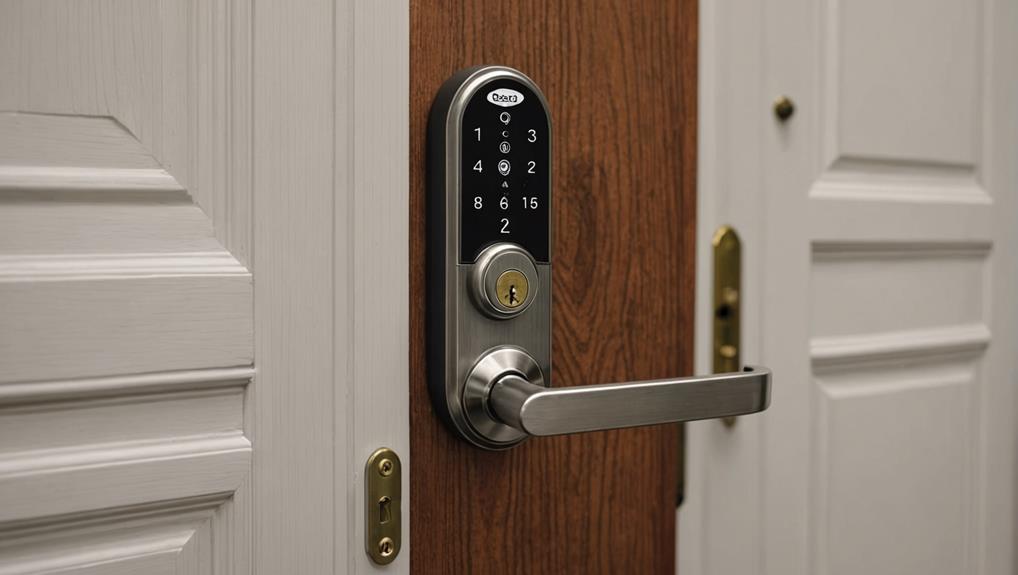
When evaluating installation and maintenance factors for deadbolts versus smart locks, it's vital to highlight the notable differences in setup and upkeep requirements.
Traditional deadbolts typically offer a straightforward installation process that can be accomplished with just a screwdriver, making them an accessible option for many homeowners. In contrast, smart locks may require professional installation or a more intricate DIY setup, depending on the model and integration with home automation systems. This complexity in setup can be compared to professional security system installations, which also might demand specialized knowledge or assistance.
Maintenance is another important factor to take into account. Smart locks rely on batteries that need monitoring and replacement, requiring regular upkeep to guarantee peak performance.
On the other hand, deadbolts have minimal maintenance needs and are less susceptible to mechanical failures. Additionally, smart locks may need software updates to address security vulnerabilities, while deadbolts, being mechanical in nature, don't require such updates.
Both types of locks require compatibility with existing door hardware, but smart locks often have specific model requirements, while deadbolts can typically fit standard doors with ease.
Cost Analysis and Considerations
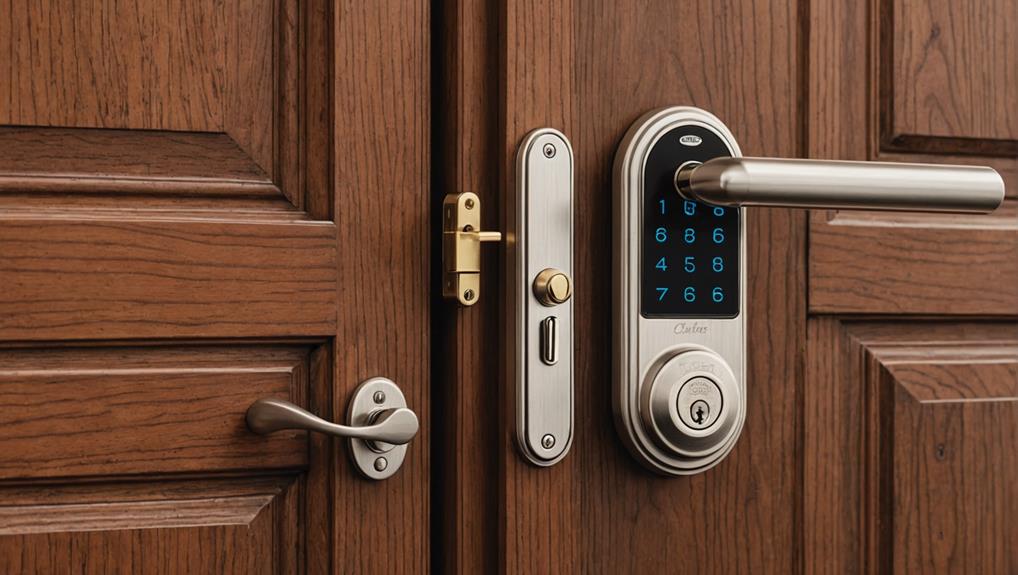
When comparing deadbolts to smart locks, you'll need to contemplate the cost-effectiveness of each option.
Budget locks and premium locks both have unique features that could influence your choice.
Evaluating the long-term investment of smart locks versus the upfront expenses of traditional deadbolts is vital for your decision-making process.
Analyzing the balance between initial and ongoing costs is essential in determining which lock type aligns best with your budget and security needs.
Cost-Effectiveness Comparison
Enhancing home security with modern technology often requires a careful assessment of the cost-effectiveness between deadbolts and smart locks. Smart locks typically come with higher upfront costs ranging from $200 to $250, while traditional deadbolts are more budget-friendly, often priced under $100. Consider ongoing expenses like battery replacements and software updates for smart locks, which can increase long-term costs compared to low-maintenance deadbolts. However, smart lock users may benefit from insurance discounts due to enhanced security features, offsetting initial investments. Investing in a dual-lock system combining both smart locks and deadbolts can offer a cost-effective solution, especially in high-crime areas. Evaluating the long-term benefits against initial expenses is significant when deciding between deadbolts and smart locks.
| Cost Consideration | Deadbolts | Smart Locks |
|---|---|---|
| Initial Cost | Budget-friendly | Higher upfront cost |
| Ongoing Expenses | Minimal maintenance | Battery replacements, potential updates |
| Long-term Benefits | Potential savings from insurance discounts | Advanced security features reducing theft risk |
| Cost-Effectiveness | Lower initial investment, potential long-term savings | Higher upfront cost but enhanced security features |
Long-Term Investment Assessment
Reflecting on the long-term investment perspective, assessing the cost analysis and various factors between deadbolts and smart locks is vital for making an informed decision about enhancing your home security.
Smart locks come with higher initial costs, typically ranging from $200 to $250, compared to the more budget-friendly deadbolts priced under $100. While smart locks may incur ongoing expenses like battery replacements and software updates, deadbolts generally require minimal maintenance with no recurring costs.
Investing in smart locks can lead to long-term savings by reducing theft risks, potentially resulting in homeowner's insurance discounts. The convenience and automation features of smart locks can offset their higher upfront cost by saving time and simplifying key management.
However, it's important to think about having a physical key as a backup when opting for smart locks to mitigate risks associated with technology failures.
Make a thoughtful investment choice that aligns with your security needs and budget for lasting peace of mind.
Initial vs. Ongoing Expenses
To compare the initial and ongoing expenses of deadbolts and smart locks, it's essential to evaluate the cost breakdown and considerations associated with each option.
Smart locks typically have higher upfront costs, ranging from $200 to $250, while traditional deadbolts are more budget-friendly, often costing under $100.
Ongoing expenses for smart locks may include battery replacements and software updates, whereas deadbolts require minimal maintenance with no recurring costs.
Homes with smart locks may qualify for insurance discounts, potentially offsetting the initial investment.
Although smart locks involve greater initial and ongoing expenses, they provide enhanced security features and convenience not found in traditional deadbolts.
In high-crime areas, the reduced risk of theft with smart locks can justify their higher costs in the long run.
Consider your priorities for security, convenience, and budget when deciding between deadbolts and smart locks for your home.
User Preferences and Comfort
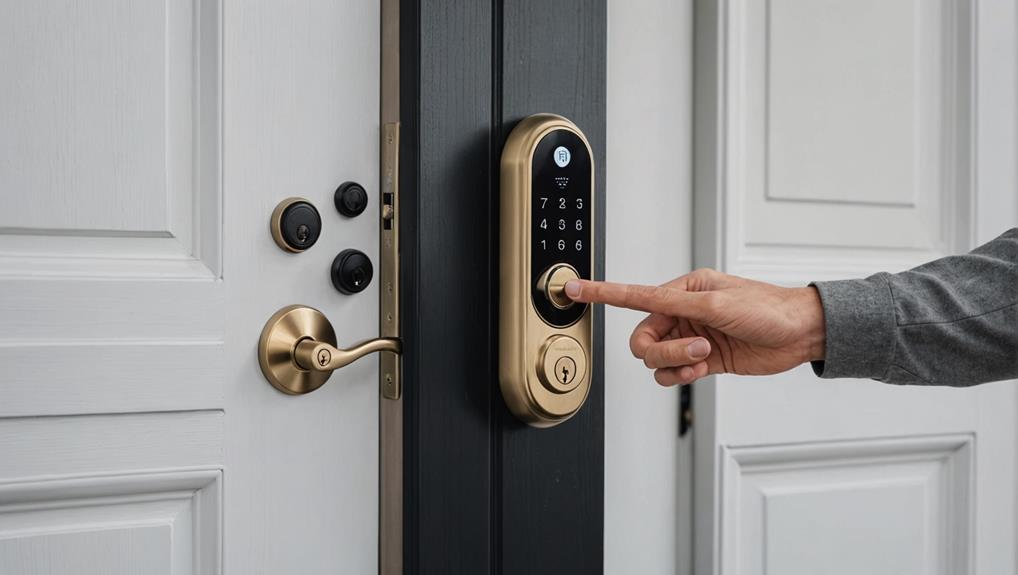
When it comes to choosing between deadbolts and smart locks, user preferences and comfort play a crucial role in the decision-making process. Your level of comfort with technology can greatly impact your choice. If you're tech-savvy and value convenience, smart locks with remote access management may be more appealing.
On the other hand, if you prioritize reliability and simplicity or have concerns about potential hacking, traditional deadbolts with physical keys might be the better option for you. Some users highlight the importance of having a fail-safe mechanism in case of a power outage, which is more commonly associated with traditional deadbolts.
Your aesthetic preferences also come into play, as some prefer the modern design of smart locks while others lean towards the classic look of deadbolts. Additionally, your past experiences with security technologies can influence your decision.
If you have had positive interactions with smart home devices, you may be more inclined towards smart locks. Ultimately, understanding your comfort level with technology, your aesthetic preferences, and your previous experiences with security systems can help you make the right choice between deadbolts and smart locks.
Smart Lock Options and Recommendations
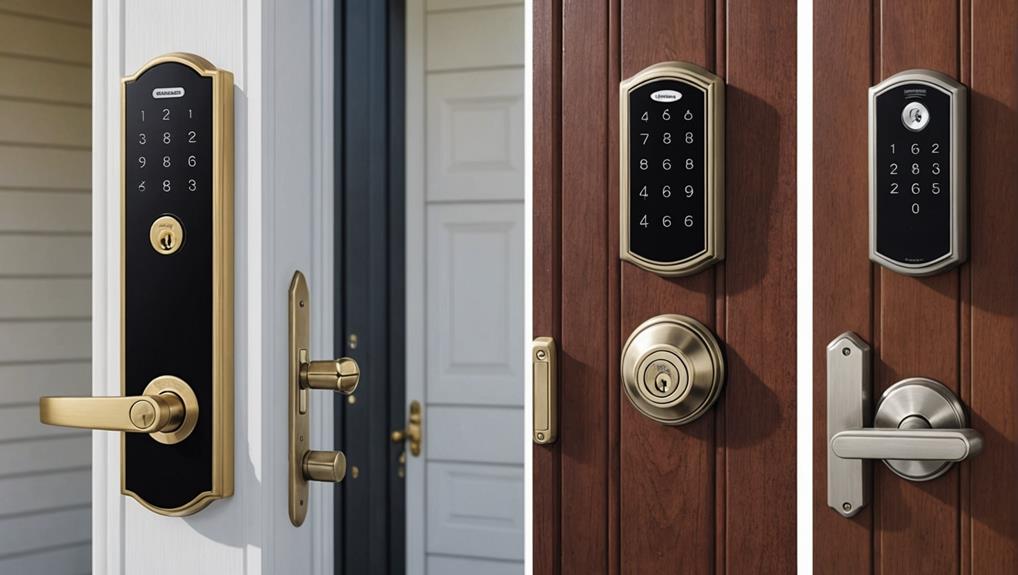
As you explore smart lock options, it's essential to evaluate the range of features and capabilities offered by different brands. Major brands like Yale and Schlage focus on smart deadbolts with motorized functions and reliable security features.
The Schlage Connect, priced around $150 on Black Friday, is a popular choice. If you have Euro profile locks, the Nuki smart lock is recommended for its key operation compatibility, while the Danalock V3 offers flexible integration options but requires a special Euro cylinder.
Refurbished models of smart locks can be found between $80 to $110, often without reported functional issues. For those interested in the best smart locks, it's also worth noting that user experience and ease of installation can vary greatly.
Smart deadbolts typically range from $200 to $250, with additional costs for accessories like lockless handles and sensors. Look for smart locks that offer programmable user codes and temporary access codes for visitors to enhance convenience and security management.
Security Considerations for Lock Types
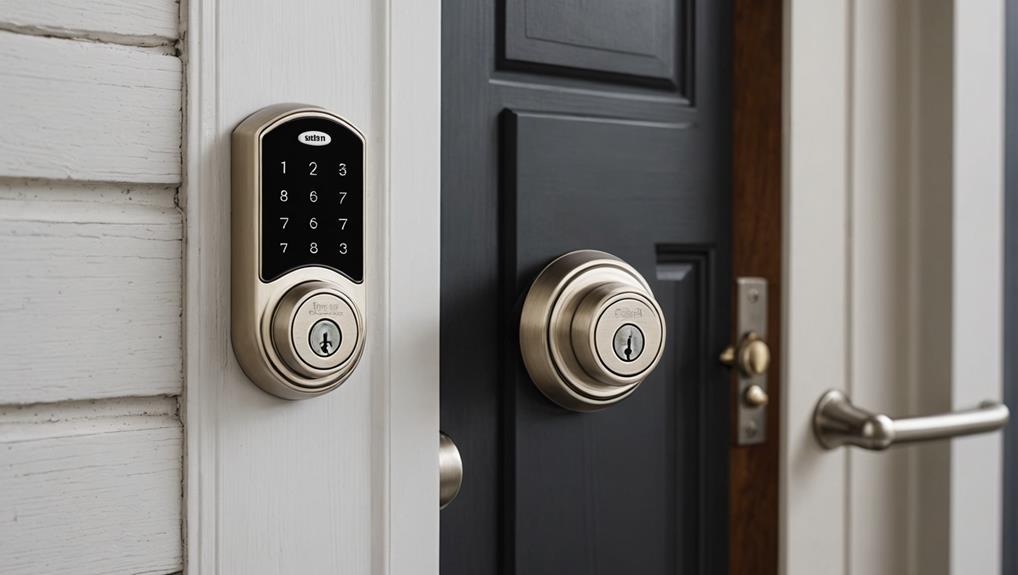
One essential aspect to take into account when evaluating security for lock types is the level of protection they offer against unauthorized access.
Smart locks provide advanced security features like encryption, two-factor authentication, and real-time activity alerts, enhancing monitoring and protection compared to traditional deadbolts. Additionally, they often include features found in high-security locks, such as tamper resistance and emergency battery backup.
However, traditional deadbolts offer mechanical security without relying on electronic components, reducing the risk of hacking. Combining smart locks with deadbolts in a dual-lock system can greatly boost overall security by blending modern technology with reliable mechanical locking mechanisms.
Smart locks may also include integrated alarm systems that activate during forced entry attempts, adding an extra layer of security not commonly found in standard deadbolts.
It's crucial to recognize that deadbolts must be properly engaged to maintain reliability, as failing to do so can create vulnerabilities. Conversely, smart locks can alert you to tampering or malfunctions, providing additional security measures to safeguard your home.
Installation and Compatibility Factors
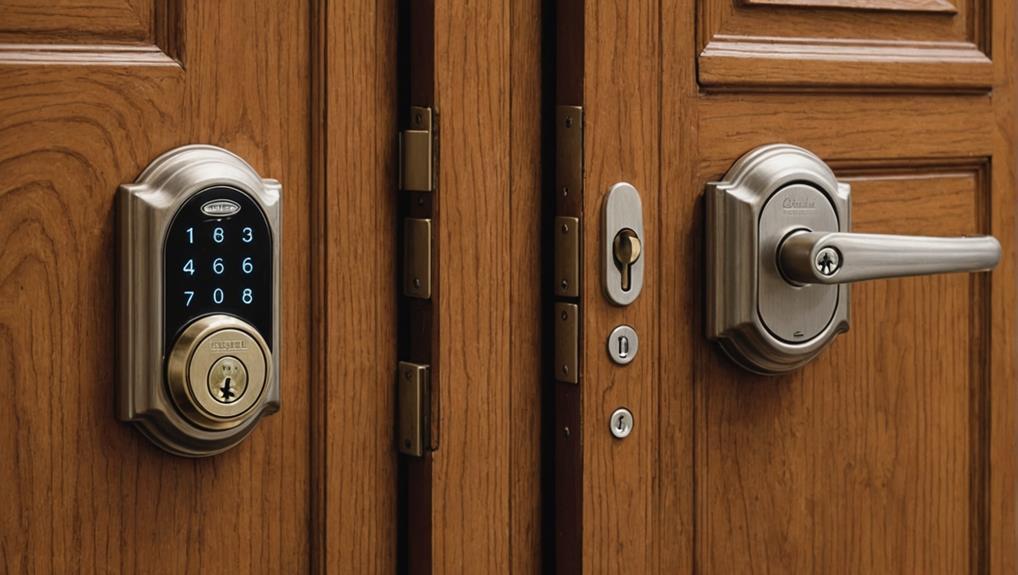
For ideal functionality and seamless integration of smart locks into your home security system, careful consideration of installation and compatibility factors is vital. Smart deadbolts typically offer straightforward installation processes, often requiring just a Phillips head screwdriver. However, some smart locks may necessitate professional installation or more complex DIY setups. Compatibility with existing door hardware is important; measurements must be taken to guarantee a proper fit, especially for retrofit options like the Nuki smart lock. Specific model numbers may be required for integration with home automation systems like Z-Wave or Zigbee, limiting options for users with existing setups. Additionally, some smart locks may have limited integration features based on the brand, impacting users seeking to enhance their home automation systems. Aesthetic considerations are also important, as some smart locks have industrial designs that may not align with traditional home decor. Evaluate your style preferences before making a purchase.
| Installation | Compatibility |
|---|---|
| Simple with Phillips screwdriver | Compatibility with existing door hardware |
| Some need professional installation | Specific model numbers for integration with home automation systems required |
User Convenience and Features Evaluation
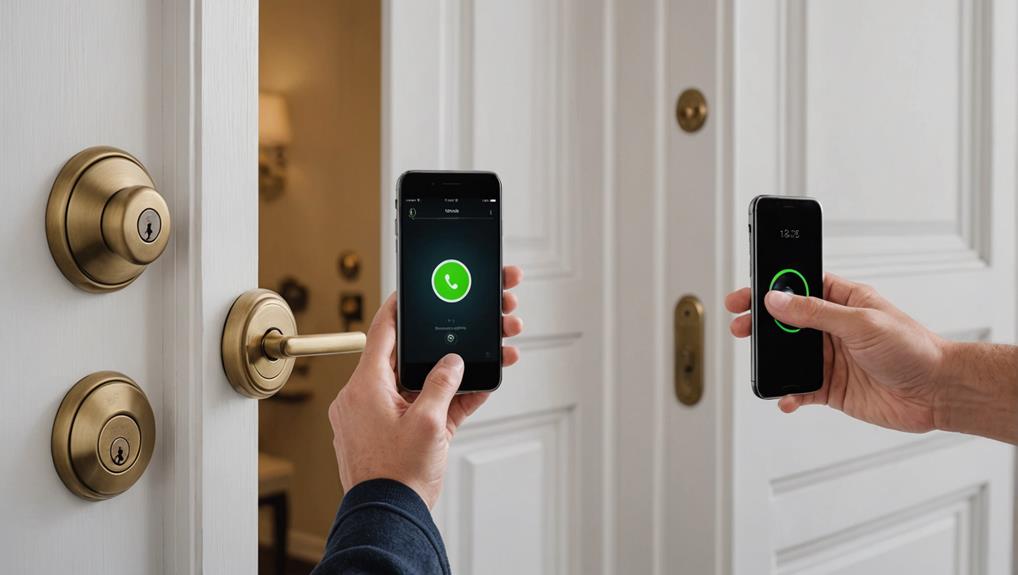
To fully grasp the advantages of smart locks over traditional deadbolts, it's crucial to take into account the user convenience and features they offer.
Smart locks provide keyless entry options, allowing you to open doors through smartphones, keypads, or biometric methods, enhancing convenience compared to traditional deadbolts that require physical keys.
Many smart locks come with features like remote access and programmable user codes, enabling you to grant temporary access to guests or service providers without needing to be present.
These locks can integrate with home automation systems, allowing you to automate routines such as locking or opening doors based on specific triggers, a feature traditional deadbolts can't offer.
Notifications for lock tampering or unauthorized access attempts are standard with smart locks, providing real-time alerts that enhance security awareness compared to the simpler alert systems of deadbolts.
The convenience of smart locks is further amplified by their ability to offer scheduling options for access codes, allowing you to control when temporary users can enter, a feature absent in traditional deadbolts.
Frequently Asked Questions
Is a Smart Lock Better Than a Deadbolt?
Yes, a smart lock can offer more security features like remote access and real-time alerts.
It's pricier than a deadbolt but provides keyless entry and programmable codes for added convenience.
Combining a smart lock with a deadbolt can boost security.
Smart locks need regular maintenance and battery checks, unlike deadbolts.
What Is the Most Secure Lock for House?
For the most secure lock for your house, consider a dual-lock system combining a smart lock and deadbolt.
This setup blends advanced tech features with traditional mechanical strength, offering a robust security solution.
Brands like Yale and Schlage offer high-quality smart deadbolts with temporary access codes and auto-locking.
What Are the Disadvantages of a Smart Lock?
When considering smart locks, it's essential to weigh the downsides. They can be vulnerable to hacking due to their reliance on technology.
Upfront costs are higher, ranging from $200 to $250. Maintenance like battery changes and updates is needed. Tech dependency may lead to failures, locking you out. Some struggle with the learning curve.
These factors might make traditional deadbolts a more appealing choice for your home security needs.
What Are the Best Locks to Keep Burglars Out of Your House?
To keep burglars out of your house, consider a dual-lock system with smart locks and traditional deadbolts.
Smart locks offer remote access and temporary codes for guests, while deadbolts provide robust mechanical security.
This combination provides multiple layers of protection against break-ins.
Conclusion
To summarize, when it comes to choosing between deadbolts and smart locks for home security, it ultimately depends on your personal preferences and needs. Deadbolts offer traditional security features while smart locks provide convenience and accessibility. Consider factors such as installation, maintenance, cost, and user comfort before making a decision. Both options have their own advantages, so choose the one that best fits your lifestyle and security requirements.

